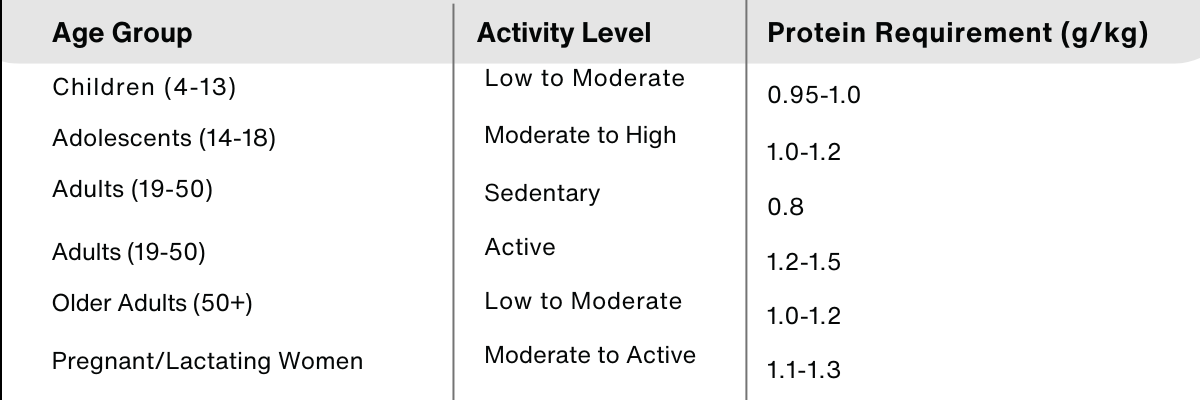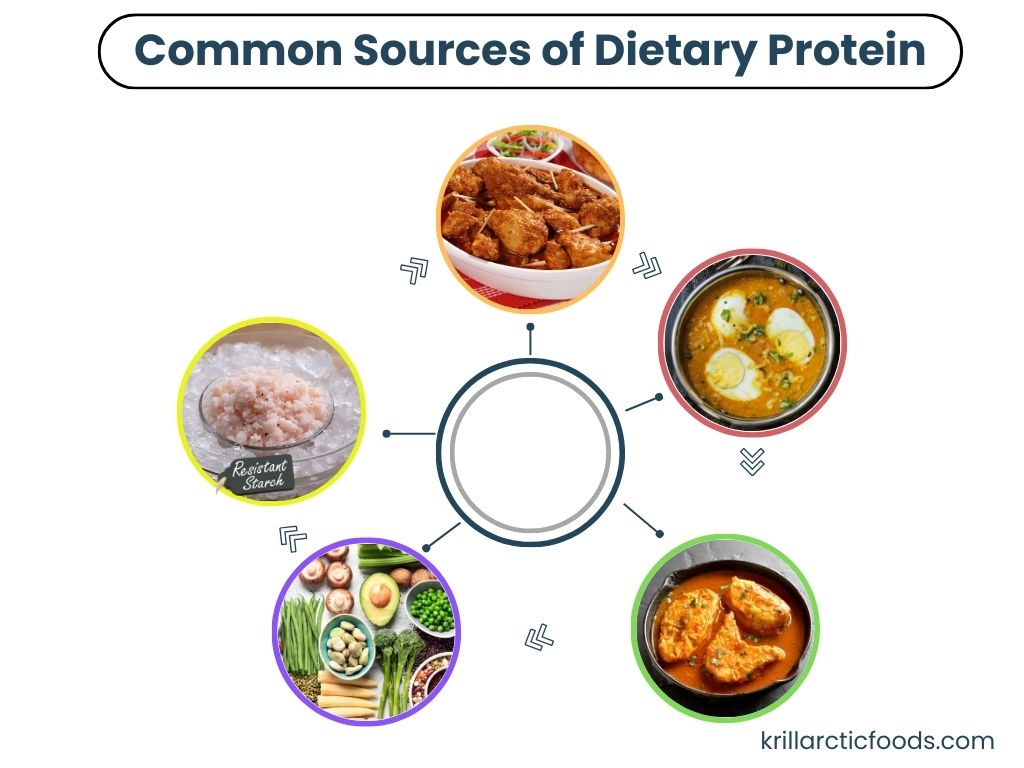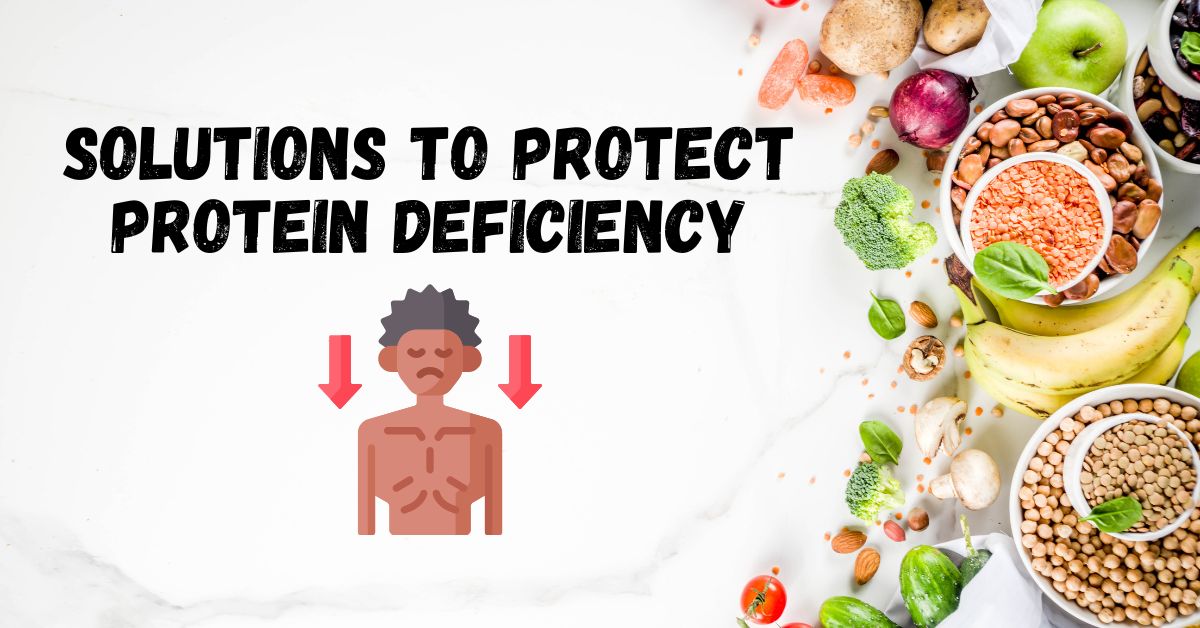Are you getting enough protein every day? If you’ve ever found yourself wondering whether you’re meeting your body’s daily protein needs, you’re not alone. Life gets busy, and sometimes it’s easy to overlook the essential nutrients our bodies rely on. Whether you’re trying to build muscle, stay energized, or just maintain good health, protein plays a critical role in keeping everything running smoothly.
Studies show that most adults need around 46-56 grams of protein per day, depending on factors like age and activity level. But how do you make sure you’re hitting that target?
In this article, we’ll break down exactly how much protein you need each day, explain why it’s so important, and show you how krill meat can help you meet your daily protein goals in a healthy, sustainable way.
Ready to take the guesswork out of your diet? Let’s dive in.
What is protein, and why is it important?
Protein is one of the building blocks of life, essential for maintaining the structure and function of every cell in your body. Composed of amino acids, protein is responsible for a wide variety of critical processes that keep you healthy and active. Whether you’re an athlete looking to build muscle or simply someone trying to maintain a balanced diet, protein is crucial for your body to function properly.
The Basic Functions of Protein in the Body
- Muscle Repair and Growth: One of the most well-known roles of protein is in muscle repair and growth. After exercise or even daily activities, your muscles undergo small tears that need to be repaired. Protein helps rebuild those tissues, making them stronger. This is why athletes and people engaging in physical activities need adequate protein to support muscle recovery and growth.
- Immune System Support: Protein plays a critical role in maintaining a healthy immune system. Proteins form antibodies, which are the body’s defense mechanism against harmful invaders like bacteria and viruses. Without sufficient protein, your immune system may not function properly, leaving you more vulnerable to illness.
- Enzymes and Hormones: Enzymes, which speed up chemical reactions in the body, are made up of proteins. These enzymes help in processes like digestion, energy production, and even DNA replication. Hormones, such as insulin and growth hormones, are also made from proteins, helping to regulate various body functions like metabolism and blood sugar levels.
- Cell Repair and Maintenance: Protein is also essential for the continuous repair and maintenance of tissues, from your skin to your organs. Your body is constantly regenerating cells, and without enough protein, this process slows down, impacting overall health and recovery from injuries or illness.
Why Everyone Needs Protein—Not Just Athletes
Protein is not just for athletes or bodybuilders. Everyone, regardless of age or activity level, needs adequate protein to support these essential functions. Whether you’re leading a sedentary lifestyle or are highly active, your body constantly uses protein to maintain balance, repair tissues, and produce enzymes and hormones.
Even for those who don’t engage in regular exercise, getting enough protein is vital for maintaining muscle mass, which naturally declines with age. Consuming enough protein helps prevent muscle loss and supports healthy aging, as well as overall well-being.
How to Calculate Your Daily Protein Requirement
Calculating your daily protein needs doesn’t have to be a guessing game. With a clear understanding of your weight, activity level, and personal goals, you can easily determine how much protein your body requires. Whether you’re focused on muscle building or just staying healthy, getting the right amount of protein will help you reach your goals effectively.
Simple Formula for Protein Calculation
The easiest way to calculate your daily protein intake is based on your body weight. Most adults need 0.8 grams of protein per kilogram of body weight. This is the minimum required to keep your body functioning properly, supporting muscle repair, immune function, and overall health.
Here’s a quick way to figure out your needs:
- First, convert your weight from pounds to kilograms by dividing your weight in pounds by 2.2.
- Then, multiply your weight in kilograms by the number that matches your activity level.
Formula: Protein intake (g) = Body weight (kg) × Protein factor
Guidelines from Trusted Sources
Organizations like the World Health Organization (WHO) and the U.S. Department of Agriculture (USDA) provide protein intake guidelines to ensure you’re meeting your body’s needs. The WHO recommends at least 0.83 grams per kilogram of body weight for adults. Meanwhile, the USDA suggests that 10-35% of your daily calories should come from protein, depending on your activity level and goals. For someone on a 2,000-calorie diet, this translates to roughly 50-175 grams of protein daily.
Protein Needs by Age and Activity Level
To make things easier, here’s a quick reference table for daily protein intake based on different age groups and activity levels:
For instance, a 30-year-old adult weighing 60 kg and living a sedentary lifestyle would need about 48 grams of protein daily (60 kg × 0.8). An active adult of the same weight would need between 72 and 90 grams.
Common Sources of Dietary Protein
Protein is a critical part of any balanced diet, and fortunately, it’s found in a wide variety of foods. Whether you’re eating meat, fish, eggs, or plant-based options, there are plenty of sources to help you meet your daily protein needs. Let’s explore some of the most common protein-rich foods, and introduce an often-overlooked powerhouse—krill meat.
1. Meat
Meat, especially lean cuts, is one of the most popular and widely available sources of protein. Chicken breast, turkey, and lean cuts of beef or pork provide high amounts of protein with minimal fat. For example, a 3-ounce serving of chicken breast contains about 26 grams of protein. Meat is not only protein-rich but also provides essential nutrients like iron and B vitamins, supporting muscle maintenance and overall health.
2. Fish
Fish is another excellent source of protein, with the added bonus of heart-healthy Omega-3 fatty acids. Salmon, tuna, mackerel, and cod are popular choices, offering both high protein content and significant health benefits. A 3-ounce serving of salmon, for instance, provides around 22 grams of protein, along with Omega-3s, which are known to reduce inflammation and promote heart health. Fish is often a go-to for those looking to balance protein intake with cardiovascular benefits.
3. Eggs
Eggs are a simple, versatile, and complete protein source. One large egg contains about 6 grams of high-quality protein, along with all nine essential amino acids your body can’t produce on its own. Eggs are easy to incorporate into various meals, making them a convenient option for people of all dietary preferences. Plus, they’re nutrient-dense, providing vitamins like B12 and D.
4. Plant-Based Sources
For those following plant-based diets, there are plenty of excellent protein sources available. Beans, lentils, chickpeas, tofu, tempeh, quinoa, and nuts all offer plant-based protein options. For example, a cup of cooked lentils contains about 18 grams of protein, while a serving of tofu provides around 10 grams. Although plant-based proteins sometimes lack one or more essential amino acids, eating a variety of plant proteins throughout the day ensures you get a complete amino acid profile.
5. Krill Meat: A Powerful, Lesser-Known Protein Source
While the more familiar options like chicken, fish, and eggs are great, krill meat stands out as a lesser-known but incredibly powerful protein source. Krill are small, shrimp-like crustaceans that provide high-quality protein with a unique combination of benefits.
Common Problems for Protein Deficiency
Protein deficiency can lead to a variety of health issues that affect both the body and mind. Ensuring you get enough protein daily is critical for maintaining strength, energy, and overall well-being.
1. Muscle Loss and Weakness
Without sufficient protein, your body starts breaking down muscle to meet its energy needs. This can lead to muscle loss and weakness, making everyday tasks feel like a heavy lift. For older adults, this is particularly dangerous, as muscle mass naturally decreases with age.
2. Slowed Metabolism
Protein plays a key role in maintaining muscle mass, which helps keep your metabolism running smoothly. Without enough protein, muscle mass diminishes, leading to a slower metabolism and potential weight gain, even if your calorie intake remains the same.
3. Weakened Immune System
Protein is the foundation for building antibodies, the body’s defense against infections. A lack of protein weakens your immune response, leaving you more vulnerable to illnesses and slower recovery from sickness.
4. Hair, Skin, and Nail Problems
Protein helps form keratin, which strengthens your hair, skin, and nails. Without it, you might notice hair thinning, dry or flaky skin, and brittle nails. These are early warning signs that your body is missing vital nutrients.
5. Fluid Retention (Edema)
Protein helps regulate fluid balance in the body. When levels drop, you might experience swelling, particularly in the legs, feet, and hands. This is a sign that your body’s fluid regulation is out of sync.
6. Mood Changes and Cognitive Decline
Protein is essential for neurotransmitter production, which impacts mood and brain function. Deficiency can lead to mood swings, anxiety, and even cognitive decline, making it harder to focus and process information.
7. Slow Wound Healing
Protein is vital for tissue repair. Without enough, wounds and injuries take longer to heal, as your body lacks the building blocks to regenerate tissue efficiently.
8. Chronic Fatigue
Low protein levels can leave you feeling constantly tired, even after rest. This happens because your body struggles to maintain energy levels without sufficient protein for muscle repair and oxygen transport.
9. Stunted Growth in Children
Protein is crucial for development in children. A deficiency can stunt growth and delay developmental milestones, leading to long-term health issues.
Neglecting your protein intake can have far-reaching effects on your health. Making sure you consume enough high-quality protein from a range of sources, including options like krill meat, can prevent these problems and keep your body functioning at its best. If you notice any signs of protein deficiency, it’s crucial to adjust your diet to meet your needs.
Solutions to Protect Protein Deficiency
Addressing protein deficiency is essential for maintaining good health, and the good news is that with a few adjustments, you can ensure you’re getting enough protein each day. Here are effective solutions to prevent or fix protein deficiency:
1. Increase Protein-Rich Foods in Your Diet
One of the simplest ways to prevent protein deficiency is to include more protein-rich foods in your meals. Here are some excellent options:
- Animal-Based Sources: Chicken, turkey, lean beef, fish, eggs, and dairy products (like yogurt and cheese) are high in protein and easily accessible.
- Plant-Based Sources: If you’re vegetarian or vegan, opt for lentils, beans, chickpeas, quinoa, tofu, tempeh, and nuts. Pair different plant-based foods to ensure you’re getting all essential amino acids.
- Krill Meat: For those seeking a lean, nutrient-dense option, krill meat offers high-quality protein along with Omega-3 fatty acids, supporting both muscle repair and heart health. Krill meat is easy to digest and offers a sustainable alternative to traditional seafood.
2. Use Protein Supplements if Necessary
For individuals struggling to meet their protein needs through food alone, protein supplements can be a helpful addition. Options like whey, casein, and plant-based protein powders can be easily mixed into shakes or smoothies. These are particularly useful for athletes or those on restricted diets. However, it’s best to rely primarily on whole food sources for protein to ensure you’re also getting other important nutrients.
3. Plan Balanced Meals
Balance your meals by incorporating a protein source into every meal and snack. This could be as simple as adding a boiled egg to breakfast, a handful of nuts as a snack, or grilled chicken with your dinner. Planning meals with protein, carbohydrates, and healthy fats ensures your body has the fuel it needs to function optimally.
4. Monitor Your Protein Intake
Understanding your daily protein needs is key. As a general rule, adults need about 0.8 grams of protein per kilogram of body weight. For active individuals, this can increase to 1.2-2.0 grams per kilogram depending on activity levels. Using a food diary or nutrition tracking app can help you monitor your intake and ensure you’re hitting your protein goals.
5. Incorporate Protein into Snacks
Snacks are a great way to increase your protein intake without dramatically changing your diet. Choose high-protein snacks like Greek yogurt, cottage cheese, hard-boiled eggs, or protein bars. Even spreading peanut butter on a slice of whole-grain toast can provide a protein boost between meals.
6. Eat Protein After Exercise
If you’re active or exercising regularly, it’s important to consume protein after your workouts. Protein helps repair muscle damage caused by exercise and supports muscle growth. A post-workout snack or meal that includes 20-30 grams of protein, like a smoothie with protein powder or a chicken salad, can aid recovery and enhance your overall performance.
7. Consult a Nutritionist or Doctor
If you’re unsure about how much protein you need or are experiencing symptoms of protein deficiency, it’s always a good idea to consult a healthcare professional. A nutritionist or dietitian can help you create a personalized plan based on your individual needs, activity level, and health goals.
8. Focus on High-Quality Protein Sources
Choosing high-quality protein is just as important as meeting your intake goals. Lean meats, fish, eggs, and krill meat provide essential amino acids that your body needs for repair and growth. Krill meat, in particular, stands out for its high digestibility and the added benefit of Omega-3 fatty acids, making it a great option for those looking to maximize their protein intake.
Frequently Asked Question
Is it necessary to use protein supplements?
Protein supplements can be helpful if you’re struggling to meet your protein needs through food alone, especially for athletes or those with specific dietary restrictions. However, whole food sources are generally preferred, as they provide additional nutrients beyond protein.
Is it safe to eat too much protein?
Consuming high amounts of protein, especially over long periods, can put strain on the kidneys and lead to other health concerns. It’s best to stay within the recommended protein range for your body weight and activity level. If you have any health conditions, consult with a healthcare professional to determine the right intake for you.
Is krill meat better than other protein sources like fish or chicken?
Krill meat offers a similar high-protein content to other lean meats but also has added benefits like Omega-3 fatty acids, low fat, and easier digestibility. While it may not be as commonly available as chicken or fish, it’s a powerful, sustainable option worth considering.
Conclusion
Meeting your daily protein requirement isn’t just about building muscle—it’s essential for overall health, energy, and body functions. Protein supports muscle repair, metabolism, immune function, and cognitive health. A balanced diet with high-quality protein sources like meat, fish, eggs, plant-based foods, and krill meat ensures your body gets what it needs.
Understanding your protein needs based on weight, activity level, and goals allows you to prevent protein deficiency. Whether you’re maintaining muscle or boosting metabolism, including varied protein sources in your diet is key. Consulting a nutritionist can help create a personalized plan, ensuring long-term health and avoiding the risks of protein deficiency.











